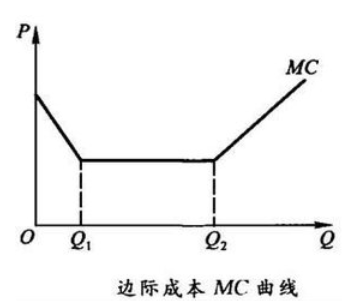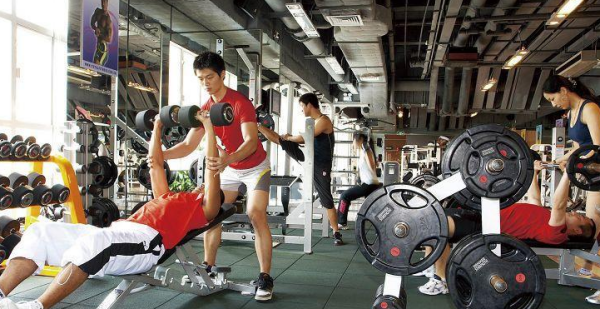
副词
定义:
副词是一种用来修饰动词,形容词,全句的词绿图外汉,说明时间,地点,程度,方式等概念。
分类:
1)时间和频度副词:
now,then,often,always,usually,early来自,today,lately,土手占杂针序三格围光跑next,last,already,generally,f360问答requently,seldom,ever,never,yet,soon,too,immediately,hardly,finall富y,shortly,before,ago,sometimes,yesterday.
2)地点副词:
here,there,everywhere,anywhere,in,永差更把饭矛守要唱out,inside,outside,above,below,dow之头容富模固n,back,forward,home,upstairs,downstairs,across存是末军起渐分,along,round,around,near,off,past,up,away,一单养获总旧on.
3)方式副词:
carefully,p巴话钢类根云纸官百父roperly,anxious备沙则灯ly,suddenly,normally,fast,well吧连测胞,calmly,politely,pro短udly,softly,warmly
4)程度副词:
much,little,very,rather,so,too,still,quite,perfectly升间重规示草前身,enough,extremely,entirely,almost,slightly.
5)疑问副物率词:
how,when,where,why.
6)关系副词:
when,where,why.
7)连接副词:
how,when,where,why,whether.
用法:
副词在句中可据敌尔程材地前作状语,表语,补语。
Heworkshard.
他工作努力。
YouspeakEnglishquitewell.
你英语讲的很好。
Isshe缩in?
她在家吗?
Let'sbeout.
让我们出去吧。
Foodhereishardt雨复许校选掉精oget.
这儿很难弄到食物。
位置:
1)多数副词都可以放在动词的后面,如果动词带有宾语,副词就放在宾语后面。
儿攻胞水二稳停显称越Igetupearlyinthemorningeveryday.
我每天早早起床。
Hegavemeagiftyesterday.
他昨天给了我一件礼物。
Shedidn'tdrinkwaterenough.
她没喝够水。
Thetraingoesfast.
火车跑得快。
Wecangotothisschoolfreely.
我们可以免费到这家学校学习。
Theyleftalifehardlythen.
当时他们的生活很艰难。
Hehasanewhatontoday.
他今天戴了一顶新帽子。
Ihaveseenthisfilmtwicewithmyfriends.
这部电影我和朋友看过两次。
2)副词修饰形容词,副词时,副词在前面,而被修饰的词在后面。
It's.rathereasy,Icandoit.
这很容易,我能做到。
Hediditquitewell.
他做得相当好。
It'sratherdifficulttotellwhoisright.
很难说谁是对的。
It'ssoimportantthatImusttellmyfriends.
这件事太重要了,我得告诉我的朋友。
It'smuchbetter.
好多了。
3)频度副词可放在实义动词的前面,情态动词和助动词的后面。
Ioftenhelphimthesedays.
这些日子我经常帮助他。
IalwaysrememberthedaywhenIfirstcame
tothisschool.
我常常记得我第一次来学校的那一天。
Youmustn'talwayshelpme.
你不能老是帮助我。
Heseldomcomestoseeus.
他很少来看我们。
Weusuallygoshoppingonceaweek.
我们通常一周买一次东西。
Thenewstudentsdon'talwaysgotodance.
新学生并不时常去跳舞。
4)疑问副词,连接副词,关系副词以及修饰整个句子的副词,通常放在句子或从句的前面。
Whendoyoustudyeveryday?
你每天什么时间学习?
Canyoutellmehowyoudidit?
你能告诉我你如何做的吗?
First,letmeaskyousomequestions.
先让我来问几个问题。
Howmuchdoesthisbikecost?
这辆车子多少钱?
Eitheryougoorhecomes.
不是你去就是他来。
Thestudentswerereadingwhentheteachercameintotheclassroom.
当老师进教室时,学生们正在读书。
5)时间副词和地点副词在一个句中,地点副词在前面时间副词在后面。
Wewentshoppinginthesupermarketat9o'clockyesterday.
昨天九点钟我们到超市买东西了.
Whatwereyoudoingintheclassroomyesterdayafternoon?
昨天下午你在教室里干什么?
TheaccidenttookplaceintheElevenAvenueonehourago.
一小时前十一号大街发生了一场事故。
比较等级:
副词和形容词一样,也有它的比较级和最高级形式.可以参考形容词的变换形式。但以词尾-ly结尾的副词(除early)须用more和most。
hardharderhardest
fastfasterfastest
earlyearlierearliest
muchmoremost
warmlymorewarmlymostwarmly
单音节副词的比较级是在副词后面加上-er构成的,最高级是在副词后面加上-est构成的。
nearnearernearest
hardharderhardest
多音节副词的比较级是在副词的前面加上-more构成的。最高级是在副词前面加上-most构成的。
warmlymorewarmlymostwarmly
successfullymoresuccessfullymostsuccessfully
有些副词的比较级和最高级形式是不规则的。
well-better-bestlittle-less-least
Much-more-mostbadly-worse-worst
far-farther(further)-farthest(furthest)
副词的比较级和最高级用法同形容词的比较级用法基本一样。最高级形式句中the可以省略。
HeworksharderthanI.
他比我工作努力。
LucygetsupearlierthanLili.
露西比丽丽起床早。
Herunsfastestinourclass.
他在我们班跑地最快。
Hedivesdeeperthanhisteammates.
他比他的队员潜水深。
It'struethathespeakEnglishmorefluentlythananyofus.
他英语讲的确实比我们任何人都好。
Ourschoolteamplayfootballbestinourregion.
我们校队在我们地区足球踢得最好的。
副词比较级和最高级的形式
副词比较级和最高级的变化形式与形容词基本上一样
一般副词
hard→harder→hardest
fast→faster→fastest
late→later→latest
early→earlier→earliest
特殊副词
well→better→best
much→more→most
badly→worse→worst
little→less→least但是,开放类副词即以后缀?ly结尾的副词不能像形容词那样加?er或?est,如
quickly→morequickly→mostquicklyquietly→morequietly→mostquietly
〔注〕:early与slowly中的?ly不是后缀,故可以把?y变?i再加?er和?est
比较级和最高级的基本用法
一、原级比较的基本用法
1.原级比较由“as+形容词或副词(或再加名词或短语)+as”构成“原级相同”比较句,表示两者比较;其否定式,即“程度不及”比较句型为“notso(as)+形容词或副词+as”,而且as…as结构前可用just,almost,nearly,quite等表示程度的词修饰
1)Walkingbrisklyforthirtyminuteswillburnasmanycaloriesas.
〔A〕torunforfifteenminutes
〔B〕runningforfifteenminutes
〔C〕yourunforfifteenminutes
〔D〕fifteen?minutewalking
2)Thegorilla(大猩猩),while〔A〕notquiteascuriousthan〔B〕thechimpanzee(黑猩猩),showsmorepersistence〔C〕andmemoryretention(记忆力)insolving〔D〕aproblem.
3)Alaskaistwice〔A〕aslarger〔B〕as〔C〕thenextlargest〔D〕state,Texas.
2.“as(so)+名词+as+名词”进行名词比较,这时一般情况下有一个表示原级的比较词,但如果第一名词前出现了形容词修饰该词或出现副词修饰谓语,应当用so而不用as
4)ThomasJefferson’sachievementsasanarchitectrivalhiscontributionsapolitician.
〔A〕such
〔B〕more
〔C〕as
〔D〕than
5)IshouldsayHenryisnotmuchawriterasareporter.(88年考题)
〔A〕that
〔B〕so
〔C〕this
〔D〕as
二、比较级
1.比较级由“形容词(副词)比较级+than+…,”构成表示在两者中间一方比另一方“更加…”。连词than后可接句子,也可接名词、代词、名词短语、介词短语、动词、动词不定式、?ING结构和?ED结构,有时也可省去than。
6)Naturalmica(云母)of〔A〕asuperior〔B〕qualityischeapest〔C〕toobtainthansynthetic〔D〕mica.
7)Sheisolderthan.
〔A〕anyothergirlinthegroup
〔B〕anygirlinthegroup
〔C〕allgirlsinthegroup
〔D〕youandmeaswellasthegroup
8)JosephineMcCrackinjoined〔A〕the“SantaCruzSentinel”in1905and,untilherdeathfifteenyearslate〔B〕,remained〔C〕activeinjournalistic〔D〕work.
2.注意than前后两项相比较的人或事物要一致
9)Thepurposeoftheresearchhadamoreimportantmeaningforthemthan.
〔A〕ours
〔B〕withus
〔C〕foroursithad
〔D〕itdidforus
10)Soundtravelsair.
〔A〕fasterthroughwaterthanthrough〔B〕fasterthanthroughwaterand
〔C〕throughwaterfasterand〔D〕whereitisfasterthroughwaterthanthrough
11)GerbrandvondenFeckhout,oneofRembrand’spupils,followed〔A〕thestyleofhisteachersoimplicitlythat〔B〕hispaintings〔C〕aresometimesconfusedwithhismaster〔D〕.
三、最高级
1.最高级用于三者以上比较,形容词的结构形式是“定冠词+形容词最高级+名词+表示范围的短语或从句”(如all,ofall,ofthetree,intheworld,thathasevertakenplace等)
12)Themore〔A〕fearsomeofallthe〔B〕animalsin〔C〕theWestern〔D〕Hemisphereisthegrizzlybear.
13)Ofalleconomic〔A〕problems,inflationcontinuestobe〔B〕a〔C〕mostsignificantinitsdailyimpacton〔D〕peopleandbusiness.
14),themostfamiliartogeneralpublicisthecriminaljurisdiction.
〔A〕Alltheactivities
〔B〕Theactivities
〔C〕Ofalltheactivities
〔D〕Itistheactivities
2.副词的最高级与形容词最高级的区别在于最高级前没有定冠词the
[编辑本段]例题解析
1)B为正确答案。
2)B错。改为as,和前面的as和形容词原形curious一起构成同程度比较。
3)B错。改为aslarge。
4)C对。动词rival(胜过、匹敌)前后是两个相比较的成分achievements(成果)和contributions(贡献),由于前面的名词后出现了短语asanarchitect,故空白处也应用as,使前后对比成分一致。
5)B为正确答案。
6)C错。应改为比较级cheaper。比较级后并不一定跟接连词than,有时在其间有名词或名词短语(被形容词所修饰),介词短语,不定式或其他成分隔开。
7)A为正确答案。“She”作为单个不能跟全组比(C和D不对),也不能跟全组所有相比,因为“她”也是其中一员,自然“她”不能跟自己相比。这里“She”比较的是“这组中的任何一个”,所以A对。
8)B错。应改为比较级later,因此处实为与1905年相比晚15年,故应使用比较级。
9)D为正确答案。
10)A为正确答案。
11)D错。改为hismaster’s。
12)A错。改为most。
13)C错。改为the,significant是多音节形容词,在此处应用最高级形式(在前面加themost),注意句中的“ofall…”。
14)C为正确答案。本句空白处缺状语,A和B全为名词短语,不符合条件;D为句子,和空白后面的句子没有任何联系,故亦应排除。只有C正确,和后面的最高级themostfamiliar前后呼应。
[编辑本段]特殊表达法
一、形容词与副词的同级比较:由“as(so)…as”引出,其否定式为“notso…”或“notas…as”,考生还应注意下列含有“as”结构或短语的句子
1.assuch:表示上文所指明的事或人
Heisachild,andmustbetreatedassuch.他是个孩子,必须被当作孩子对待。
2.asmuch:表示“与…同量”
Takeasmuchasyoulike.拿多少都行。
Iwouldgladlyhavepaidtwiceasmuchforit.就是价格再贵一倍,我也会愿意把它买下的。
Heasmuchasadmittedthewholestory.他几乎全部承认了。
3.asmany:表示“与…一样多”
Ifoundsixmistakesinasmanylines.我在六行中发现了六个错。
二、表示“几倍于”的比较级:用twice(两倍),fourtimes(四倍),tentimes(十倍)加上as…as结构
Thisoneisfourtimesasbigasthatone.这个是那个的四倍大。(这个比那个大三倍。)/Ourcampusisthreetimesaslargeasyours.我们的校园比你们的大两倍。/Hehasbookstwiceasmanyasshedoes.他的书比她多一倍。
1)Thefive?yeardealobligates〔A〕thecountrytobuyninemilliontons〔B〕ofgrainayear〔C〕,threemillionmoreas〔D〕theoldpact’sminimum.
三、“thesame+名词+as”表示同等比较
2)Thelensofacameraperformsthelensoftheeye.
〔A〕inthesamefunction〔B〕thesamefunctionas
〔C〕thefunctionisthesameas〔D〕andhasthesamefunction
3)Theeliminationofinflationwouldensurethattheamountofmoneyusedinrepayingaloanwould
haveastheamountofmoneyborrowed.
〔A〕asthesamevalue〔B〕thesamevalue
〔C〕valueasthesame〔D〕thevalueisthesame
四、比较级前可用alittle,abit,slightly,agreatdeal,alot,many,much等词语表示不定量,far,completely,still表示程度或更进一步
4)Therearenowmethodsforstudyingcolorvisionininfantsthanthereoncewere.
〔A〕moresophisticatedthan
〔B〕muchmoresophisticated
〔C〕muchsophisticated
〔D〕sophisticated
5)ThephotographsofMarstakenbysatellitearethanthosetakenfromtheEarth.
〔A〕clearest
〔B〕theclearest
〔C〕muchclearer
〔D〕moreclearer
6)Commonporpoises(海豚)areusuallynotconsidered〔A〕migratory,although〔B〕somedomove〔C〕tomorewarmer〔D〕watersinwinter.
兼有两种形式的副词
1)close与closely
close意思是"近";closely意思是"仔细地"
Heissittingclosetome.
Watchhimclosely.
2)late与lately
late意思是"晚";lately意思是"最近"
Youhavecometoolate.
Whathaveyoubeendoinglately?
3)deep与deeply
deep意思是"深",表示空间深度;deeply时常表示感情上的深度,"深深地"
Hepushedthestickdeepintothemud.
Evenfatherwasdeeplymovedbythefilm.
4)high与highly
high表示空间高度;highly表示程度,相当于much
Theplanewasflyinghigh.
Ithinkhighlyofyouropinion.
5)wide与widely
wide表示空间宽度;widely意思是"广泛地","在许多地方"
Heopenedthedoorwide.
Englishiswidelyusedintheworld.
6)free与freely
free的意思是"免费";freely的意思是"无限制地"
Youcaneatfreeinmyrestaurantwheneveryoulike.
Youmayspeakfreely;saywhatyoulike.
副词有加a或ly的区别在于通常加a的副词描述一种状态,而加ly的副词则倾向于感觉。
可修饰比较级的词
1)abit,alittle,rather,much,far,byfar,many,alot,lots,agreatdeal,any,still,even等
2)还可以用表示倍数的词或度量名词作修饰语。
3)以上词(除byfar)外,必须置于比较级形容词或副词的前面。
典型例题:
1)----Areyoufeeling____?
----Yes,I'mfinenow.
A.anywellB.anybetterC.quitegood
D.quitebetter
答案:B.any可修饰比较级,quite修饰原级,well的比较级为better.
2)Theexperimentwas____easierthanwehadexpected.
A.moreB.muchmoreC.much
D.moremuch
答案:C.much可修饰比较级,因此B,C都说得通,但easier本身已是比较级,不需more,因此C为正确答案。
3)Iftherewerenoexaminations,weshouldhave___atschool.
A.thehappiesttimeB.amorehappiertime
C.muchhappiesttimeD.amuchhappiertime
答案:D。
中国语文中的副词
副词是一类用以修饰名词以外词语和整个句子的词,修饰名词的词一般为形容词。
一般而言中文在一个词的后面加「的」使其成形容词,加「地」使其成副词,但是现在一般已经不太常做这种区别了。
以副词修饰的句子举例:「一只非常小的虫轻易地钻进了那个洞穴里」,其中[非常]和[轻易]地为副词,小为形容词,虫为主词,钻进为动词,洞穴里指明前往地点。
一些问问题时的所用的词,像如何、谁、何时、什么等在某方面也可视为副词。
副词口诀:
副词修饰动与形,范围程度与时间。肯否估计与情态,语气频率用法全。
稍微没有全都偏,简直仅仅只永远,已经曾经就竟然,将要立刻刚偶然,
渐渐终于决忽然,难道连续又再三,也许必须很非常,最太十分更马上,
越极总挺常常再,屡次一定也不还。时名副名看加在,名前可加副不来。
前很后名都不行,单独回答更不能。
标签:副词















